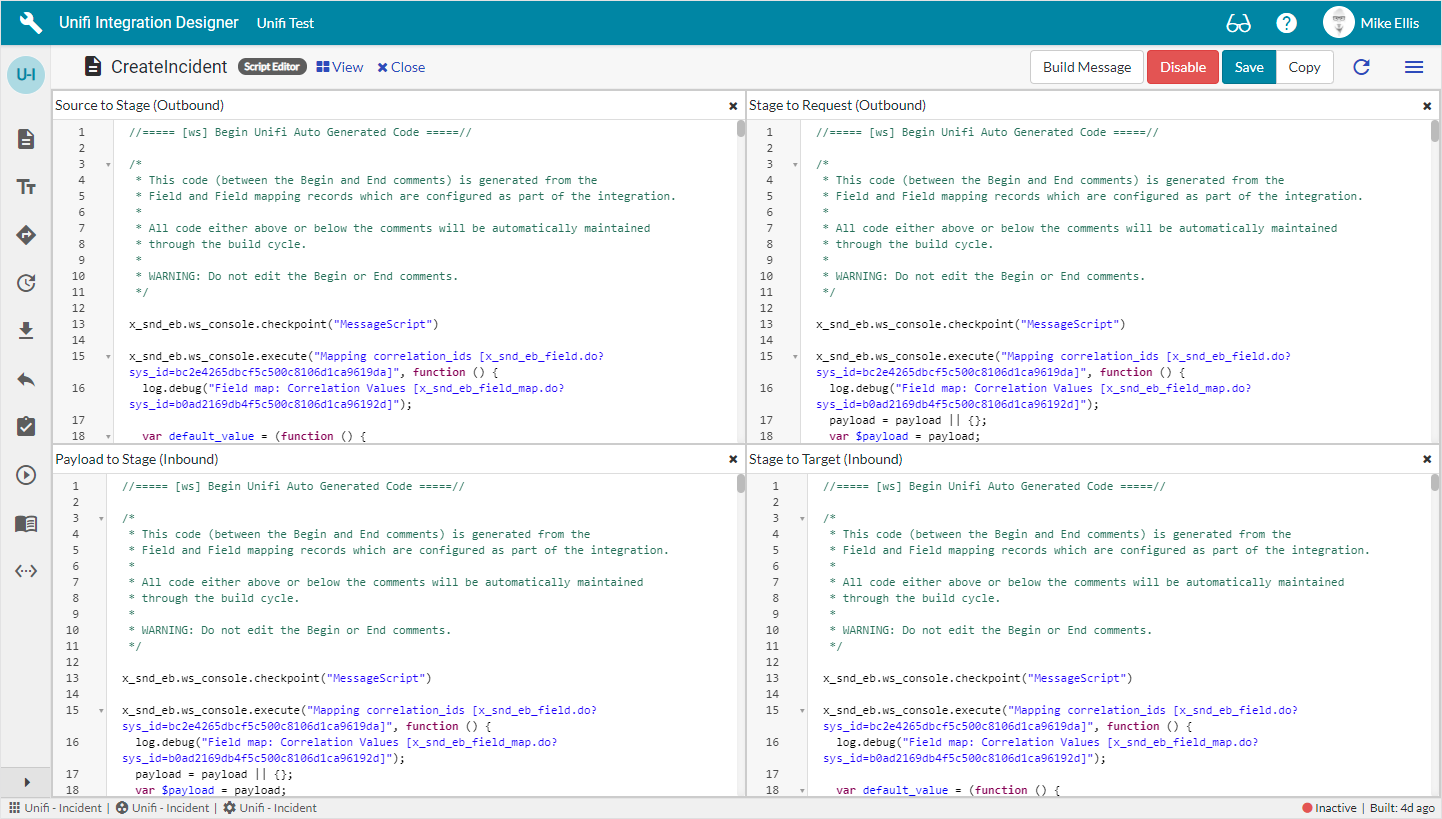Message Scripts
Message Scripts are where the request processing and data mapping occurs.
if (!source.location.nil()) {
stage.u_location_id = source.location.name;
stage.u_address = source.location.street;
stage.u_town = source.location.city;
stage.u_county = source.state;
stage.u_postcode = source.zip;
stage.u_country = source.country;
stage.region = source.region;
}
Bond State & Ownership
Fields and Field Maps
Was this helpful?
